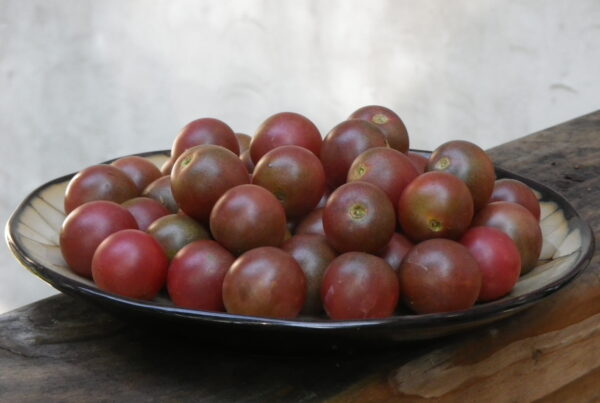Get Involved with VABF Advocacy for Regenerative Agriculture
Climate change and the pandemic supply chain breaks have raised awareness among the public and legislators of the importance of regenerative agriculture, and momentum is building for far-reaching changes in national and state policy and programs for agriculture and conservation. VABF is looking to expand its policy advocacy initiatives, including organizing farmer listening sessions and organizing our membership for more effective advocacy to have more input into the federal and state policy process. If interested, please contact Francesca Costantino, 703-380-7487, labella_francesca@yahoo.com.
In newsletters, we will continue to share information on important legislation under development for VABF members to express support for to your elected officials. You can find your US Congressional representative and your State Senator and Delegate and their contact information at https://whosmy.virginiageneralassembly.gov/.
Agriculture provisions under the American Rescue Plan, passed and signed into law earlier this year, will provide historic debt relief to Black and Indigenous farmers and other farmers of color, as well as over $1 billion to improve land access, address heirs property issues, establish an equity commission, and create a legal center to provide legal advice and resources to BIPOC farmers. Under the debt forgiveness proposal, USDA would pay up to 120 percent of outstanding farm debt held by BIPOC farmers on farm loans made directly by USDA’s Farm Service Agency or through private lenders (i.e. Farm Credit, ag banks) with USDA guarantees. Farmers could use the additional relief funds to pay any taxes owed as a result of the debt relief. According to estimates from the Congressional Budget Office, approximately 15,000 BIPOC farmers will receive an average debt relief payment of $20,000. For more on these provisions, click here.
Round 2 Coronavirus Food Assistance Program (CFAP2)
Sign-up reopened for 60 days on April 5, 2021
USDA is reopening sign-up for CFAP 2 for at least 60 days beginning on April 5, 2021. CFAP 2 provides financial assistance that gives producers the ability to absorb increased marketing costs associated with the COVID-19 pandemic. Eligible commodities include specialty crops, livestock, dairy, row crops, aquaculture, floriculture and nursery crops. Visit farmers.gov/cfap for details on all eligible commodities, producer eligibility, payment limitations and structure and additional program resources.
Producers have multiple options to apply for CFAP 2, including through an online application portal and by working directly with the FSA office at their local USDA Service Center. Customers seeking one-on-one support with the CFAP 2 application process can call 877-508-8364 to speak directly with a USDA employee ready to offer assistance. This is a recommended first step before a producer engages with the team at the FSA county office. For more information see https://www.farmers.gov/pandemic-assistance/cfap.
USDA Asks for Stakeholder Input on Climate Action Plan by April 29, 2021
President Biden issued an Executive Order on Tackling the Climate Crisis at Home and Abroad directing Federal Agencies to take action on climate change mitigation and resilience, including directing the Secretary of Agriculture to collect stakeholder input on a climate-smart agriculture and forestry strategy. USDA is asking for stakeholder input on how its conservation and other programs can better address the climate challenge through a public comment process.
To make your voice heard on how USDA programs can better support climate-smart, resilient agriculture, submit comments on or before 11:59 p.m. Eastern Time April 29, 2021 through the Federal Register process at the following link:
Submit comments to USDA at https://www.regulations.gov/commenton/USDA-2021-0003-0001
If you do not have time to write your own comments and still want to cast your “vote” for effective USDA action, check out the petition being circulated by the Land Stewardship Project in Minneapolis. If you find yourself in agreement with LSP’s recommendations, you can sign their petition at: https://landstewardshipproject.org/usdaclimateaction. Also, check out the petition being circulated by the Organic Farmers Association.
USDA Seeks Comments to Support Resilient, Diverse, Secure
Food System Supply Chains by May 21, 2021
U.S. Department of Agriculture (USDA) is seeking comments on a Department-wide effort to improve and reimagine the supply chains for the production, processing, and distribution of agricultural commodities and food products. USDA is taking this action in response to Executive Order 14017, America’s Supply Chains
(https://www.whitehouse.gov/briefing-room/presidential-actions/2021/02/24/executive-order-on-americas-supply-chains/), signed by President Biden on Feb. 24, 2021. The request for comments is published in the Federal Register (https://www.federalregister.gov/documents/2021/04/21/2021-08152/supply-chains-for-the-production-of-agricultural-commodities-and-food-products )and the comment period will close on May 21, 2021.
The comments received will help USDA assess the critical factors, risks, and strategies needed to support resilient, diverse, and secure supply chains and ensure U.S. economic prosperity, national security, and nutrition security for all Americans. Such supply chains are needed to address conditions that can reduce critical processing and infrastructure capacity and the availability and integrity of critical goods, products, and services. Identifying food system supply chain-bottlenecks and vulnerabilities also may provide valuable insights into the competitive and fair markets landscape, effects on local and regional producers and processors, and equitable access to food and economic opportunity across diverse communities.
Help Promote the Agriculture Resilience Act
The Agriculture Resilience Act (ARA) is the first comprehensive piece of legislation introduced in Congress addressing climate change and agriculture, and will be the main focus of lobbying by the National Sustainable Agriculture Coalition for the current legislative session. It is a “marker bill” that will inform development of the next Farm Bill (2023) and other important legislation. VABF representatives including farmers Janet Aardema of Broadfork Farm and Renard Turner of Vanguard Ranch met recently with Rep. Abigail Spanberger and to promote the ARA.
First introduced into the House last summer, the ARA seeks to reduce net US agricultural greenhouse gas emissions to zero by 2040 and enhance agricultural and food systems resilience. Its provisions include a quadrupling of agriculture research funding with climate as top priority; expanded conservation programs with emphasis on soil health, climate mitigation, and resilience; widespread adoption of advanced grazing management; farmland preservation; on-farm renewable energy; and food waste reduction.
This far-reaching legislation would provide the incentives to transition the US agricultural system from the current industrial, monocrop model to diversified, localized, regenerative farming by: 1) proposing robust but achievable expansion of funding for grants and technical assistance programs, crop insurance, tax credits, etc.; and 2) including climate change and its mitigation as criteria and priority for the major federal programs that provide support and incentives for agriculture.
On April 22 (Earth Day), Representative Chellie Pingree re-introduced the ARA into the House with 16 original cosponsors include Rep. Abigail Spanberger (7th-VA) and Gerald Connolly (11th-VA). Senator Martin Heinrich introduced a companion bill (same text) into the Senate, with Senators Bernie Sanders (I-VT) and Kirsten Gillibrand (D-NY) as cosponsors.
The 2021 version of the bill makes some important changes, including:
- Expand the state and tribal soil health grants program to include all States and Tribes.
- Improve the Conservation Stewardship Program for organic and transitioning operations.
- Expand funding for the Organic Certification Cost Share.
- Increased support for small meat and poultry processing operations.
- Expanded support for transition from annual to perennial production systems.
- Greater emphasis on ensuring that BIPOC and other historically underserved producers receive urgently needed support in building resilience to the impacts of climate change.
For a section by section summary: https://www.dropbox.com/s/1da6ngrmmkplggo/ARA%20Section%20by%20Section%202021_FINAL.pdf?dl=0
Fact sheet: https://www.dropbox.com/s/6ho0g4saajj8xeb/ARA%20Factsheet%202021_FINAL.pdf?dl=0
Take Action
Ask your Congressional Representative and Virginia’s two Senators to co-sponsor the Agriculture Resilience Act. Both Senator Warner and Senator Kaine have been strong advocates for conservation, sustainable agriculture, and racially equitable local food systems.
- You can find your US Congressional representatives and their contact information at
https://whosmy.virginiageneralassembly.gov/
- For those in the districts of Rep. Spanberger or Rep. Connolly – thank them for their sponsorship of this vitally important legislation.
- If you work with other national, state or local organizations for sustainable agriculture, food systems, and environmental protection, ask them to support this bill and join the organizational sign-on here. VABF has signed on with Rep. Pingree’s office in support of this legislation.
VABF Partners with Universities in
Southern SARE Regenerative Grazing Project
The Southern region SARE program has awarded $1 million – its largest grant ever – to a region wide team led by the National Center for Appropriate Technology (NCAT) to develop regenerative grazing systems for our region. Comprised of six universities, three NGOs, and eight livestock producers from four states, the project team includes both VABF and Virginia Tech.
Based on initial successes with advanced grazing management in Texas, the project, led by Mike Morris of NCAT, Eric Bendfeldt from the Virginia Cooperative Extension Service, Dirk Phillip with the University of Arkansas, and Rocky Lemus from Mississippi State University, aims to expand and adapt these systems to optimize Soil for Water throughout the Southern region. Project goals include:
- Identify practical and regionally-appropriate ways of improving soil health and catching more rainwater in soil.
- Launch a new multi-state network of landowners who are conducting on-farm trials.
- Improve communication and information-sharing among producers and agricultural professionals who are interested in regenerative grazing.
$330 million USDA Support for Specialty Crops
through Pandemic Assistance for Producers
As part of its Pandemic Assistance for Producers Initiative, the USDA is making available an additional $330 million to help agricultural producers and organizations in the food supply chain recover from the impacts of Covid-19. This includes $169.9 million in the Specialty Crops Grants to expand production and markets for vegetables, fruit, and other specialty crops; $75 million in Covid Relief and Response Grants through the Gus Schumacher Nutrition Incentive Program to improve access to fresh produce for low-income communities; and $80 million in the Pandemic Assistance for Cotton Users program to support utilization of domestically produced cotton. This funding will address shortfalls and disparities in how assistance was distributed in previous COVID-19 assistance packages, with a specific focus on strengthening outreach to underserved producers and communities and small and medium agricultural operations. For more information on these programs, click here.
What’s New with Conservation Reserve Program?
USDA announced that it is opening enrollment in the Conservation Reserve Program (CRP) with higher payment rates, new incentives, and a more targeted focus on the program’s role in climate change mitigation. Additionally, USDA is announcing investments in partnerships to increase climate-smart agriculture, including $330 million in 85 Regional Conservation Partnership Program (RCPP) projects and $25 million for On-Farm Conservation Innovation Trials. For more information from the USDA Farm Services Agency, click here and .
How the Conservation Stewardship Program
can Address Biodiversity and Climate Crises
As the USDA Natural Resources Conservation Service’s flagship working-lands program, the Conservation Stewardship Program (CSP) has great potential to help farmers address the twin global crises of climate disruption and declining biodiversity. While sharp cuts to CSP funding in the 2018 Farm Bill and a flawed Final Rule published in 2020 have compromised the CSP’s efficacy, the Biden Administration’s call for USDA and all government departments to present their plans to help tackle climate change open new opportunities to restore the CSP to closer to its potential to help farmers build resilience, sequester carbon, reduce greenhouse gas emissions, and provide homes for wildlife and native plant communities.






